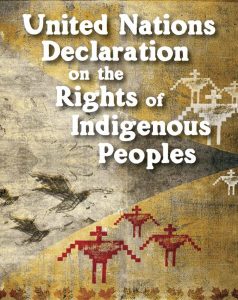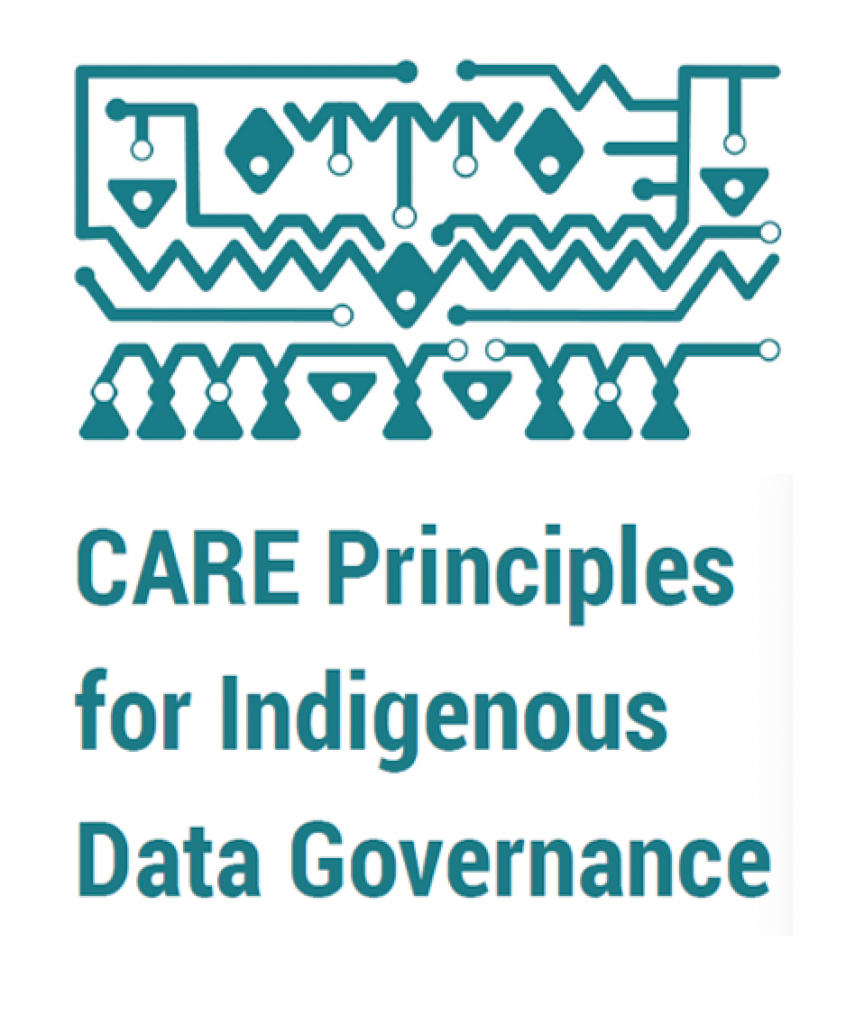Indigenous or traditional knowledge is embedded in cultural traditions of indigenous peoples, regional and local communities and based on empirical observations and interaction with the environment over several centuries.
In September 2007, the United Nations General Assembly adopted the UN Declaration on the Rights of Indigenous Peoples (UNDRIP) as the most comprehensive international instrument on the rights of indigenous peoples. For example, the General Assembly is “[…] Recognizing that respect for indigenous knowledge, cultures and traditional practices contributes to sustainable and equitable development and proper management of the environment, […]”
Article 31 1. Indigenous peoples have the right to maintain, control, protect and develop their cultural heritage, traditional knowledge and traditional cultural expressions, as well as the manifestations of their sciences, technologies and cultures, including human and genetic resources, seeds, medicines, knowledge of the properties of fauna and flora, oral traditions, literatures, designs, sports and traditional games and visual and performing arts. They also have the right to maintain, control, protect and develop their intellectual property over such cultural heritage, traditional knowledge, and traditional cultural expressions.
Read more at un.org/…/declaration-on-the-rights-of-indigenous-peoples.html
Objective
At Access 2 Perspectives, we aim to provide a platform and recommendations for indigenous representatives to act as stakeholders and equal partners in collaborative research projects of any discipline.
Big thanks to @UNESCO for actively and explicitly consulting with #indigenouspeoples for #OpenScience in your globally inclusive approach that led to this first draft.
— Access 2 Perspectives (@openscicomm) February 17, 2021
See also https://t.co/EYASHB2klz#IndigenousKnowledge #HowtoIndigenousNow #UNDRIPhttps://t.co/C2S62AZ0fx pic.twitter.com/cTKdyxZ93h
Disciplines where IPs contribute
Linguistics
- language diversity
- language evolution
- preservation of traditional knowledge with indigenous languages
Social Sciences & Humanities
- Cultural studies
- Anthropology
- Mental health approaches
- Indigenous philosophy and worldwide
- sharing culture in societies
- Human rights and legal aspects: self-determination, autonomy, collective rights versus Intellectual Property versus individual ownership
- Peace & conflict: about territory, land rights, peace agreement treaties
Bioscience
- Local and systemic ecological understanding
- Biodiversity
- Correlation between indigenous self-determined territories and biodiversity hotspots
- How indigenous knowledge informs ecosystems restoration
- Natural resource management by and with IPs and communities
Economics
- sustainable economy
- REDD+
- Ocean management (One Ocean)
- Green Economy
Agriculture
- Agroforestry
- Sustainable farming practices
Intellectual Property Issues in Cultural Heritage (IPinCH)
The Intellectual Property Issues in Cultural Heritage (IPinCH) project was a seven-year international research initiative based at Simon Fraser University, in British Columbia , Canada (2008-2016), exploring the rights, values, and responsibilities of material culture, cultural knowledge and the practice of heritage research.
A video from the NGO First Peoples Worldwide (not operating anymore) on ‘The Economy’ comparing indigenous vs. western world view
Enter the dialogue
List of platforms and organisations representing and represented by Indigenous Peoples
International
+ en.wikipedia.org/wiki/List_of_indigenous_peoples
+ UN Permanent Forum on Indigenous Issues (UNPFF) Secretariat
+ IWGIA
+ Cultural Survival
+ Survival International
Africa
+ Indigenous Peoples of Africa Coordinating Committee (IPACC)
Asia
+ Asian Century Institute
+ Tebtebba (Philippines)
Europe
+ en.wikipedia.org/wiki/Category:Indigenous_peoples_of_Europe
+ Saami Council
Oceania
+ Maori Council
+ Aboriginal Council of Winnipeg
+ NSW Aboriginal Land Council
America
+ en.wikipedia.org/wiki/Indigenous_peoples_of_the_Americas#
References
David-Chavez, D. M. (2019, July 23). A guiding model for decolonizing environmental science research and restoring relational accountability with Indigenous communities. https://doi.org/10.31237/osf.io/ec9s5
International Society of Ethnobiology (2006). International Society of Ethnobiology Code of Ethics (with 2008 additions). http://ethnobiology.net/code-of-ethics/
Langlois K (2018). When Whales and Humans Talk. hakaimagazine.com
Robbins J (2018). Native Knowledge: What Ecologists Are Learning from Indigenous People. e360.yale.edu
Traynor C & Foster L, Principles and practice in open science: Addressing power and inequality through “situated openness”. ocsdnet.org
Pecl G et al (2017) Biodiversity redistribution under climate change: Impacts on ecosystems and human well-being. Science Vol 355, Issue 6332
Find more peer-reviewed articles covering and incorporating indigenous knowledge at



